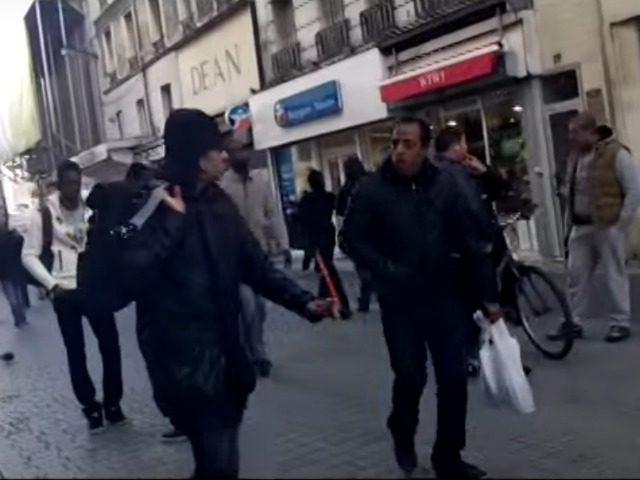Women are invisible in public spaces and are unwelcome in cafés and bars in France’s migrant-heavy suburbs, a shocking report broadcast on France 2 last week revealed.
Reporting from Saint-Denis, a commune where 36 per cent of residents were born overseas, journalist Caroline Sinz narrates: “The café terraces and the streets have something in common: women seem to have been erased. In some neighborhoods, men occupy public places and women suffer.”
Footage taken with a hidden camera captured how patrons react when women entered a café in the area. Two activists are shown walking into the venue, on the pretext they’re looking for a friend, but are told “It’s best to wait outside” by a customer, while another tells the women that “in this café, there is no diversity”.
The manager, asked by the activists to imagine he wants to bring a cousin or a female friend to the venue, explains that his cousin would be at home, adding “She does what she wants but she does not come here with me”.
“In the café there is no mixing. We are in Sevran [Saint-Denis], we are not in Paris. In 93 [Saint-Denis] it’s a different mentality — it’s like back home”, he tells the women.
Brigade of Mothers activists, who speak out against Islamic extremism, told Ms Sinz that conservative Muslim men took hold of heavily migrant suburbs in France following urban riots in 2005. Routinely threatened for opposing religious fundamentalism, the women decide to stop the interview when someone stops the car, to watch them.
The France 2 journalist then travels to a neighbourhood in Lyon, where the streets are apparently shown to be occupied almost solely by Muslim men. A young, white woman who works as a childminder says she wouldn’t dream of wearing a skirt or make-up outside in the area, and that she does her best to go unnoticed. Asked why, she tells the programme: “Simply, we are afraid”.
Secretary of State for Digital Affairs and Innovation, Axelle Lemaire, said the newscast shows “intolerable” examples of “discrimination against women”. On Sunday night Labour Minister Eric Woerth said scenes uncovered in the report “plant a dagger in the heart of the Republic”, and urged new Prime Minister Bernard Cazeneuve to take action.
Speaking on the decision to author the report, Ms Sinz said she felt driven “to break the law of silence” surrounding women in public spaces in certain areas of France. The biggest obstacle to creating the piece, she revealed, was finding women who would agree to be filmed voicing their concerns.
The France 2 journalist told franceinfo: “They are afraid, they have already spoken out in many cities, and were insulted and assaulted. So now to avoid threats, and being put under pressure, they censor themselves and keep quiet.”

COMMENTS
Please let us know if you're having issues with commenting.